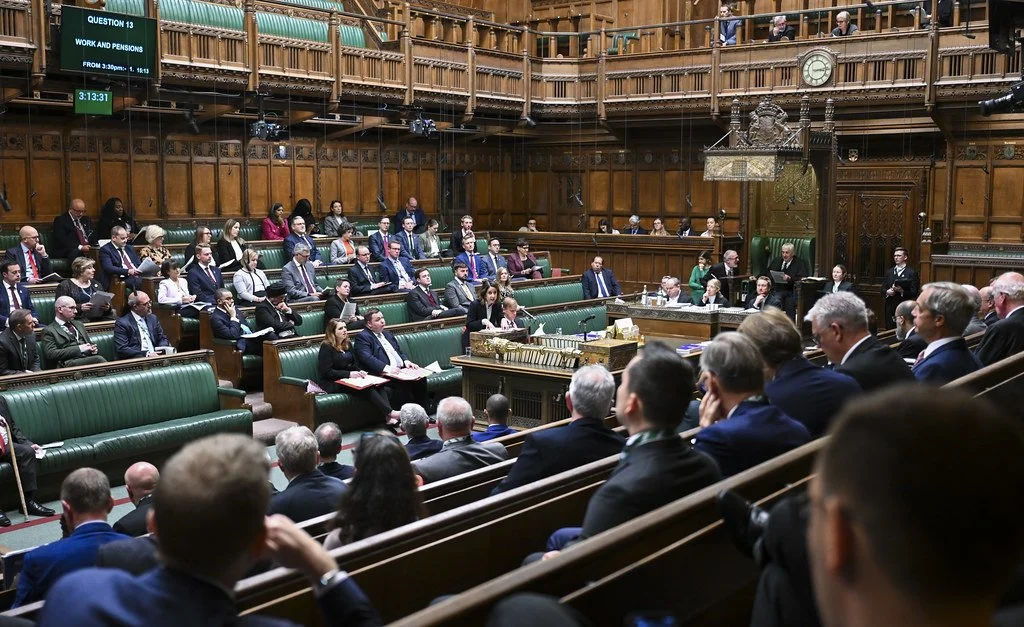The Price of Truth: How Important is Whistleblowing in Politics Today?
Image Credit: House of Commons via Flickr
For decades, many assumed that government institutions could be trusted to act in the public interest. Transparency and the rule of law were thought sufficient to keep misconduct in check. Whistleblowers were often seen as anomalies - inconveniences that could be easily ignored.
Yet reality reveals a completely different picture. Abuse of legal institutions often thrives in silence, hidden from public scrutiny by evading public engagement and fostering fear of speaking the truth. This is why whistleblowers are essential to the proper functioning of democracy and the day-to-day operations of public bodies; they provide early warning of serious problems before these escalate into crises.
Whistleblowing has become an increasingly controversial and widely discussed topic as high-profile cases continue to emerge. In the UK specifically, debate has been sparked surrounding the case of Johnny Mercer, a former Veterans’ Minister who refused to reveal the identities of whistleblowers alleging unlawful killings by British Special Forces in Afghanistan. Mercer argued that protecting those courageous enough to expose wrongdoing was essential, prompting national discussion about the balance between transparency and protection.
Similarly, in 2025, former civil servant Josie Stewart won an unfair dismissal case against the UK government after being fired for leaking information about the Afghanistan withdrawal. Stewart firmly stated that her actions were in the public interest and deserved protection.
It is evident that such cases are crucial in ensuring that democratically elected bodies act within the limits of their authority. So how have the people who perform this important public function been protected so far?
UK whistleblower protections are primarily based on the Public Interest Disclosure Act 1998 (PIDA), which protects employees from dismissal for raising certain concerns. However, PIDA is widely regarded as outdated by experts, with loopholes that exclude many individuals, including the self-employed, volunteers, and the armed forces. Rights are typically enforced only after dismissal has already occurred, through employment tribunals - a process with a success rate of less than 15%. Stronger legislation is therefore urgently needed.
On 15 September 2025, the UK House of Commons rejected amendments to the Employment Rights Bill proposed by the House of Lords, which attempted to strengthen whistleblower protections. These amendments included requirements for employers to properly investigate such disclosures, expanded circumstances for unfair dismissal, and broader definitions of qualifying disclosures.
Concerns similar to those raised in parliamentary debates are also reflected in government research. Stronger protections could place additional burdens on employers, creating financial and human-resource strains by requiring unnecessary investigations. There is also concern that such provisions could be misused, as personal grievances might be filed under whistleblowing provisions, diverting attention from genuine public interest issues.
However, such arguments overlook the fundamental purpose of whistleblowing: it is not a matter of convenience or financial efficiency - it is a matter of democracy. Transparency is not a luxury we should strive to afford; it is a necessity. To safeguard the democracy we have, the UK must protect those who expose its failings to the public. Individuals must be able to report misconduct, particularly by government bodies, without fear of losing job security or suffering reputational damage. Therefore, there is a growing push for reform, including the proposed Office of the Whistleblower Bill, a Private Member's Bill, which would address some of these concerns.
Political whistleblowers are not troublemakers - they are guardians of accountability. Recent court cases have moved in the right direction, such as that of Josie Steward, which established that civil servants have the right to speak out when they observe systemic failures and confirmed that they are protected under the Public Interest Disclosure Act. However, it is essential that every single one of us monitor the government’s progress in ensuring effective protection for whistleblowers and, in turn, our democracy.

